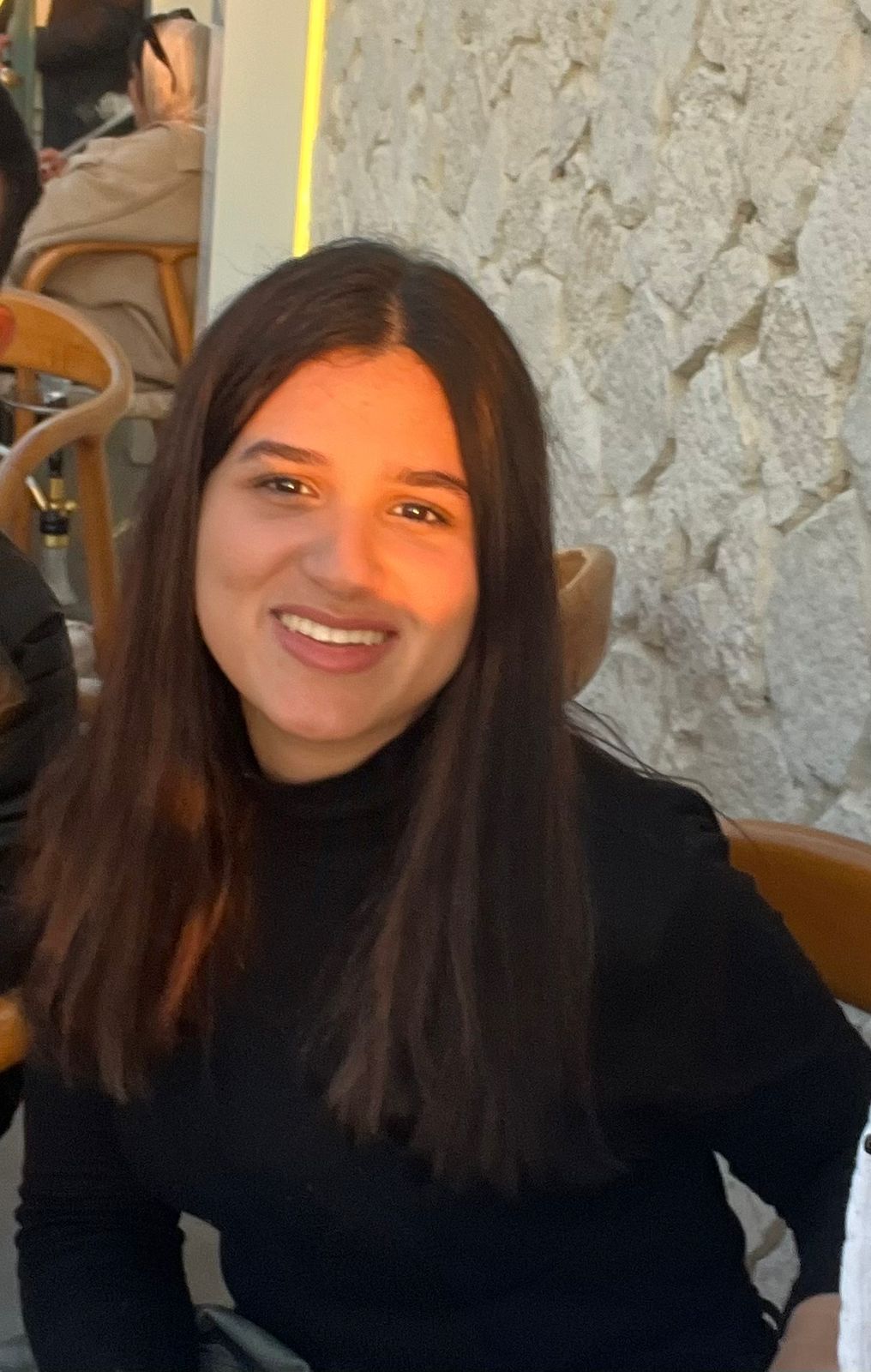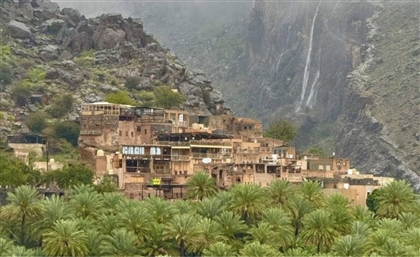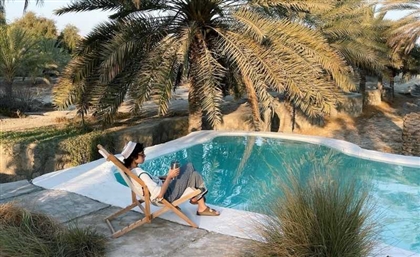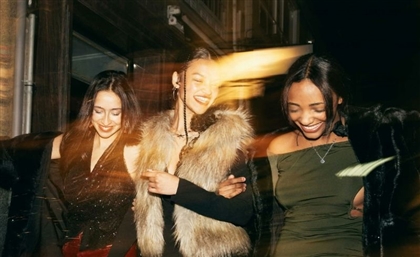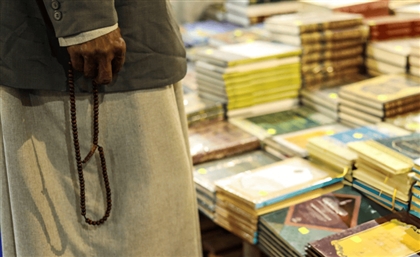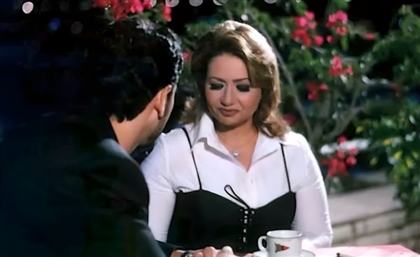Amir Taba Uses His Paint Brush to Divulge What We Hide Under Our Ribs
The Swedish-Persian artist, based in the UAE explores memory, order, and the absurd logic of everyday life through delicate, layered compositions that are at once chaotic and meticulously controlled.
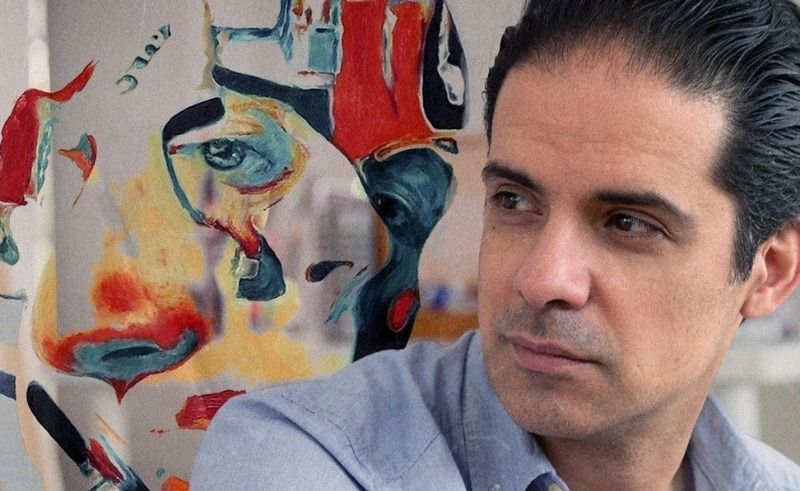
Originally Published on Nov 27, 2025
Conversing with Swedish-Persian painter Amir feels a bit like standing in front of one his many canvases: you get drawn in, asked to lean closer to be presented with an unsettlingly familiar reflection, yet one that’s entirely new.
We see this immediately in works like his series 'The Southern Resurrection', titled after the Rumi poem, where the central theme of his work —what he calls “forced or incomplete transformation”— finds its most potent expression. The figures here are hybrid creatures, caught between human and animal, aspiration and burden. They are vessels, metaphors. They wanted to become something “noble” and “free,” like a horse. But, Taba notes with a quiet, devastating accuracy, “They ended up being like a donkey. It's happening in our life as well… we are just carrying the weight of everybody and everything.” The feeling in these paintings is a “quieter register, the silence of times of doubt,” a pause where transformation is felt without yet being resolved.
-039934cb-27e4-4149-9903-d054007ff19a.jpg) Patterned (2023)
Patterned (2023)
This meticulous, patient observation extends to his process, which itself is a story of adaptation. A “happy accident” —an allergy to oil paints— forced him to switch to acrylics. Where oils are slow and forgiving, acrylics are urgent and demanding. “You have to mix colours, and mix colours, and mix colours, because it's just drying up,” he says, the repetition echoing the labour itself. “You are in the moment. It feels very close to the way life itself unfolds. Even when a plan is clear, each moment has to be lived as it comes.”
Taba’s journey to this point —a studio in Dubai, with work headed for the London Biennale— was no straight line. Born in Tehran, he was raised in an atmosphere of textures and textiles in his mother’s costume atelier, a world that bred, as he calls it, a “special sensitivity.” He initially pursued the clean lines of mathematics, only to abandon them for the art academy. The first of many transformations; he has since “lived and walked” in Sweden, Germany, Morocco, and now the UAE, each country depositing a layer onto his artistic psyche. From Sweden, a sense of “space and stillness”; from Morocco, “ornament and rhythm”; from Germany, “structure and clarity.” These influences are the instruments of his artistic orchestra; the very grammar of his observation. “I feel I'm more of an observer than somebody who is showing something.”
-a6ce9928-0dbf-480a-8a08-51bf651e040a.jpg) Whatever (2022)
Whatever (2022)
His core philosophy, stated as a manifesto, is a simple, stark preference: “What I'm doing is confrontation. I prefer confrontation over comfort. I do not feel obliged to make the reflection gentle or comfortable, but I do feel responsible for keeping it true.”
Taba’s 'Patterned Series' turns his mirror outward. Inspired by the modern obsession with self-image —the endless feedback loop of faces on screens— the series explores the dissonance between self-perception and external perception. “You see yourself from angles you never asked for,” he says, “and you also shape yourself for an audience that is always present.”
-f3e6c5b7-546a-424f-b661-b3db3a3985df.jpg) Fabricated Evolution (2023)
Fabricated Evolution (2023)
For Taba, this is lamentation and anthropology. “The question here is not how to resolve the conflict but how to live with it. That space between how we see ourselves and how others see us will probably never disappear, and maybe it should not.”
Perhaps the most personal of his works, 'The Leaves of the Past', began as a tribute to his late mother. “I contribute this permanent collection to my mother and to the places where I wished she could have been,” he says softly, “but never had the chance.”
In these pieces, colour becomes memory; form becomes absence. “The act of painting is solitary and meditative,” he says. “It is a time when I feel close to my mother, through the sense that those moments still live on.”
-5d55e82f-c70c-4f4b-9f87-df1625007e61.jpg) Tethered to Struggle (2023)
Tethered to Struggle (2023)
This openness extends to his social vision. In works like 'Oddly Recognizable' and 'Condemned at First Sight', Taba examines the human tendency to judge the familiar more harshly than the strange. “I was interested in how quickly we judge one another compared to how easily we accept what is imperfect in nature.”
He doesn’t believe art can redeem us, exactly. “Art does not erase prejudice, nor does it instruct. It simply places us in front of what we might otherwise overlook and asks for patience.” But that patience, he insists, matters. “When someone spends time with a face that at first feels unsettling, it may slowly become familiar, even sympathetic. In that shift, we see how fragile our judgements can be.”
“Whether this builds empathy is not something I can claim," Taba adds. "But the possibility is there.”
-0d0a5a6a-04b5-421c-9907-2e4dc6be7424.jpg) Entwined Paths (2023)
Entwined Paths (2023)
The final layer of Taba’s work is text. He writes extensively about each piece, to understand it himself, to add layers. “Writing about a work begins after the painting itself has come to rest,” he says. “The title and the statement are ways of listening back to what has already been made.” It is a final act of observation, of finding the point where all the narrative ropes of a piece cross.
For an artist so focused on confrontation, Taba is remarkably free of dogma. “My part ends where theirs begins,” he says of his viewers. “I can offer the reflection, but the meaning belongs to them.” He refuses to sign his paintings, believing the work has its own story, independent of its creator. “I'm just a medium to just bring them out,” he says. “Like a mirror from a dustpan.”
Now, building a life in Dubai, he looks to the future with a quiet determination. He sees a region that imports a great deal of art, and he wants to be part of a new conversation, one that is exported. “What I can contribute,” he muses, “is maybe not so much something entirely new, but a way of holding different experiences together.”
- Previous Article Simonds Bakery is Now Available in Berlin
- Next Article Babbo’s Ushers in new era With Zamalek Location
Trending This Week
-
Feb 12, 2026







